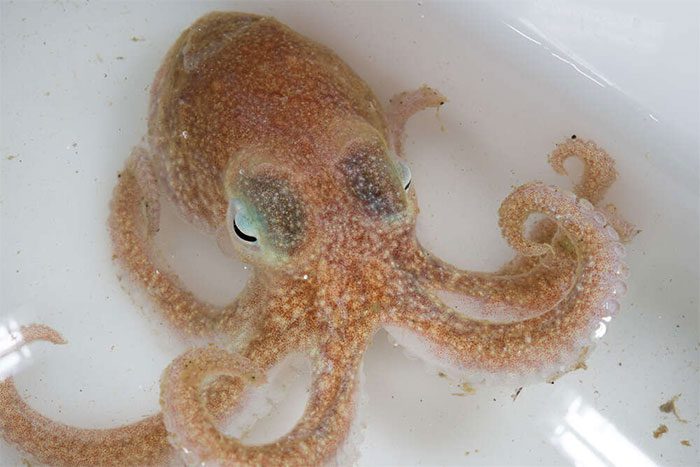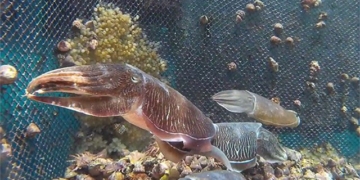According to The Guardian, a team of scientists has discovered something extraordinarily unusual in the DNA of the Turquet octopus: a “black box” that holds records of the melting of the Antarctic ice sheets millions of years ago and predictions about the future of Antarctica.
The research aimed to investigate whether the ice sheets completely collapsed during the last interglacial period—around 125,000 years ago—when Earth’s temperatures were similar to those of today.
Interglacial periods are times when the average global temperatures are warmer, leading to the melting of ice in polar regions and alternating with glacial periods within an ice age.

A lineage of octopuses living around Antarctica has revealed frightening insights from their DNA.
The Antarctic ice contains enough water to raise global sea levels by 3 to 4 meters, meaning that many human habitats today would be completely submerged.
Eleven scientists from fields such as biology, genetics, glaciology, and computer science chose the Turquet octopus because they have inhabited the Antarctic region for the past 4 million years.
Genetic samples from 96 octopuses collected over three decades have unveiled the species’ past.
Specifically, their DNA indicates that 125,000 years ago, some octopus populations on opposite sides of the West Antarctic Ice Sheet mixed, with the only connection being the marine route between the southern Weddell Sea and the Ross Sea.
According to Dr. Sally Lau, a geneticist from James Cook University (part of Queensland University, Australia) and the lead author of the study, this could only have occurred if the ice sheet had completely collapsed.
Professor Nick Golledfe, a co-author from Victoria University of Wellington (New Zealand), noted that a major concern is that once the ice sheet reaches its melting peak, the melting will persist for centuries.
This serves as a dire warning for humanity because if the Antarctic ice melts, ice in many other parts of the world will also melt, causing sea levels to rise even higher.
According to a recent report from the United Nations, temperatures during the last interglacial period were 0.5 to 1.5 degrees Celsius higher than pre-industrial levels, and global sea levels were 5 to 10 meters higher than today. We are nearing the “dangerous threshold” of 1.5 degrees Celsius.
The study also reiterates that octopuses provide fascinating scientific insights. Octopuses and their close relative, the squid, possess many unusual features in their brains and DNA, including superior intelligence and sharing some traits with humans.
A study published in 2018 by 33 renowned scientists worldwide suggested that octopuses might be “hybrids” of extraterrestrial beings, emerging around 540 million years ago.
The reason is that this group of organisms “jumped” into the tree of life abruptly, lacking connections with contemporary species—indicating a mix of strange genes not belonging to Earth organisms of that era.


















































